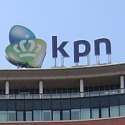Also in today's EMEA regional roundup: UK's Public Accounts Committee fears the worst for rural broadband notspots; BT 'snubbed' over pandemic broadband offer; Nokia steers private network at Port of Seattle.

Also in today's EMEA regional roundup: UK's Public Accounts Committee fears the worst for rural broadband notspots; BT "snubbed" over pandemic broadband offer; Nokia steers private network at Port of Seattle.
Three Dutch fiber-optic networks have been transferred from Digital City to KPN. The networks in question serve Westerveld, Lingewaard amd Berg en Dail, and together comprise around 7,700 addresses. According to KPN, nothing changes for those already connected to the network. Financial details of the deal have not been disclosed.
A report from the UK government's Public Accounts Committee on the rollout of "superfast" (at least 30 Mbit/s download) broadband has concluded that 1.6 million UK premises, most of them in rural areas, cannot yet access superfast speeds and that there is a real danger those areas could be left even further behind their metropolitan cousins as the rollout program continues. "We are concerned that the Department [for Digital, Culture, Media & Sport] has yet to make any meaningful progress in delivering the policy and legislative changes deemed essential by industry if it is to achieve rapid roll-out," write the report's authors, adding that the DCMS was unable to tell the committee "when it intends to deliver major milestones, such as the letting of contracts." (See Boris broadband plan is way off pace, says UK spending watchdog and Eurobites: UK's gigabit rollout needs to roll a lot faster, says EY report.)
In other UK government strife, the Mirror claims that Education Secretary Gavin Williamson, turned down an offer from BT to get free or cheap broadband for thousands of disadvantaged families struggling with connectivity during the coronavirus pandemic. According to the report, back in the spring of last year, as the pandemic hit its stride, BT asked Williamson's Department for Education to identify families who needed access to the Internet, offering to provide it for them as a priority and at cost price. But, says Marc Allera, the CEO of BT's Consumer division, the offer was declined. Connectivity has become a huge issue during lockdown and the consequent closure of UK schools, with many students trying to learn at home having to rely on mobile broadband and inadequate devices. Figure 1:
 Gavin Williamson: He used to sell carpets for a living; now he pulls the rug from under the UK's education system.
Gavin Williamson: He used to sell carpets for a living; now he pulls the rug from under the UK's education system.
(Source: UK Parliament website. Used under Creative Commons)Finland's Nokia has landed an LTE/5G private network deal at the Port of Seattle, signing an agreement with Tideworks Technology to deploy its Digital Automation Cloud (DAC) platform at Terminal 5. DAC, says Nokia, offers reliable high-bandwidth, low-latency private networking, local edge computing capabilities, voice and video services and a range of applications.
Hyperoptic has extended its gigabit fiber network in the southern English city of Southampton to reach another 4,000 homes owned by the local authority, and hopes to add another 2,000 in the near future. The company first began laying fiber in the city in 2016, focusing initially on private-sector properties.
The UK's Competition and Markets Authority (CMA) is launching an investigation into Google's"Privacy Sandbox" proposals to remove third-party cookies on the Chrome browser and Chromium browser engine and replace them with a new set of tools for targeting advertising and other purposes. The CMA has received complaints from, among others, Marketers for an Open Web, a group of newspaper publishers and technology companies, which allege that, through the proposals, Google is abusing its dominant position in the online advertising market.
— Paul Rainford, Assistant Editor, Europe, Light Reading
Read more about:
EuropeAbout the Author(s)
You May Also Like










